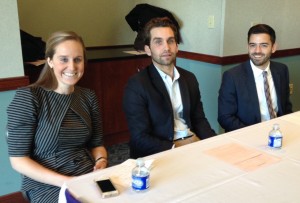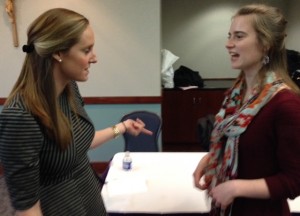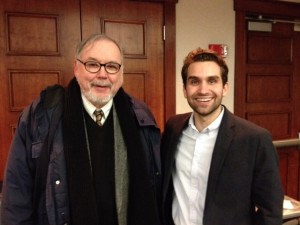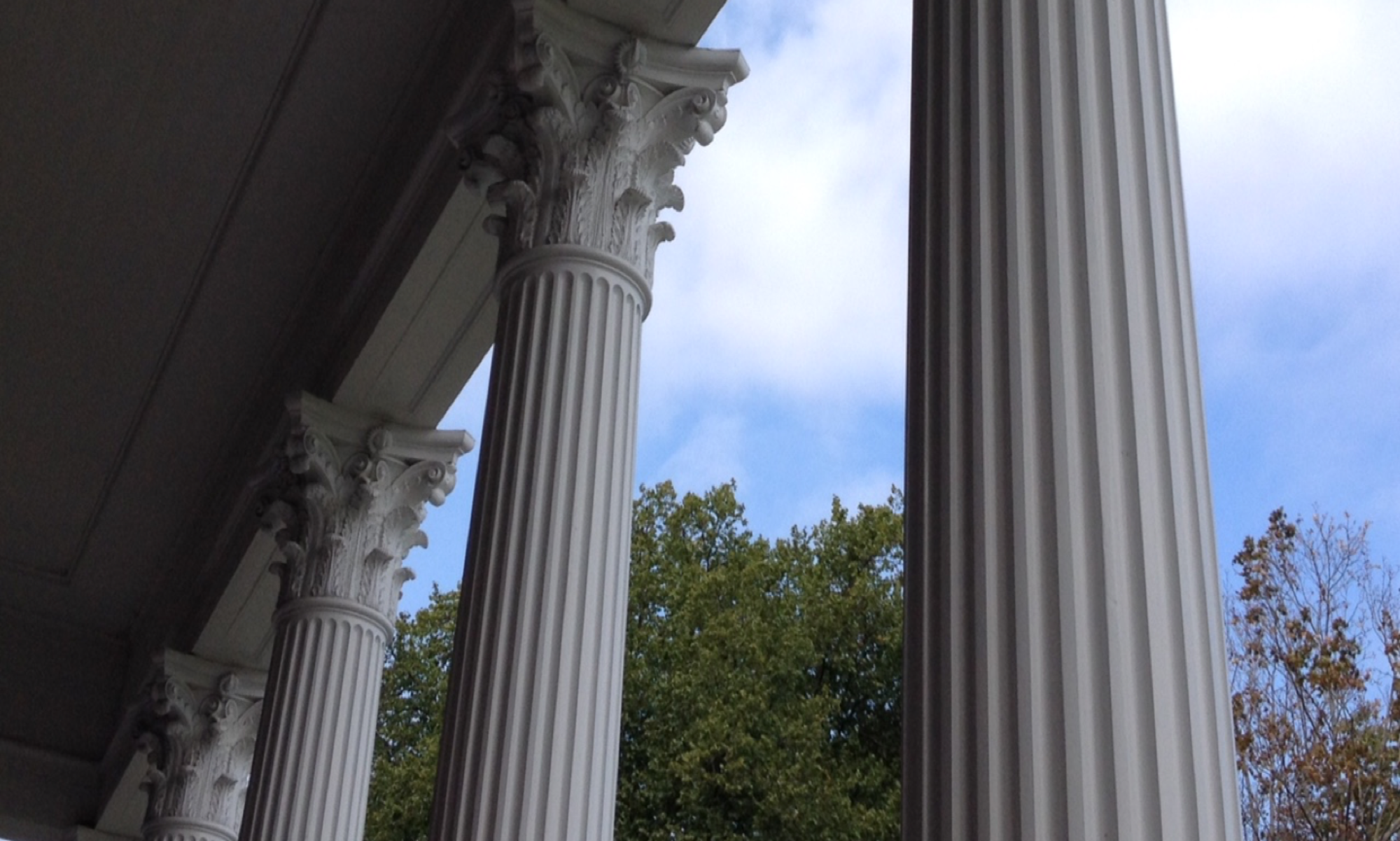On Thursday, February 18, three Holy Cross Classics alums returned to campus to discuss how their education in Greek and Latin has informed their lives after college. Meg Moran ’08, a human resources executive at Johnson & Johnson in New Jersey, Ryan O’Malley ’09, an elected representative on the city council in Malden, Mass., and Colin Clark ’11, a film and television production professional in New York, reflected back on their paths since graduation and shared some wisdom with current students.

Ryan, who worked in real estate and project management before his successful election bid this past November, singled out the semester he spent in Rome among its age-old monuments – many of which still survive and function. His public service now includes infrastructure planning, and he draws on that time in Rome when thinking about lasting solutions. “Those of us who studied ancient Rome and Greece are better prepared to look at things from a longer perspective,” said Ryan. “We think not in quarters or years, but in decades, centuries, and millennia.”
Meg, who went on to earn an MBA at Dartmouth’s Tuck School of Business, highlighted how her Classics major has always distinguished her from others in her field. One distinguishing factor she emphasized was her ability to read things closely. “In my first internship I became known as the person who could read and edit documents with a critical eye,” she said. “Little details – little mistakes – matter, and that was something instilled in me during my Greek and Latin courses.”

Colin, who has worked on television shows such as HBO’s “Boardwalk Empire” and films such as the upcoming Teenage Mutant Ninja Turtles 2, echoed Meg’s thoughts. “My Latin and Greek courses were a mental boot camp. The structure of sentences and of language is ingrained in the heads of Classics majors – whether we want it or not!” said Colin. “I’ve been able to use these ingrained reading and editing skills for reviewing production materials.”

During the Q-and-A discussion with current students, Ryan brought up another habit of mind that unites Classics majors – and that has daily relevance for his work in government. “Classics majors are inquisitive people. We’re the types who get excited about the discovery of a lost scroll,” he said. “And this can spread to all aspects of our lives. We’re the ones asking more questions and deeper questions.”



